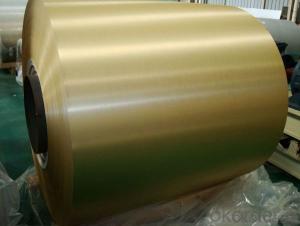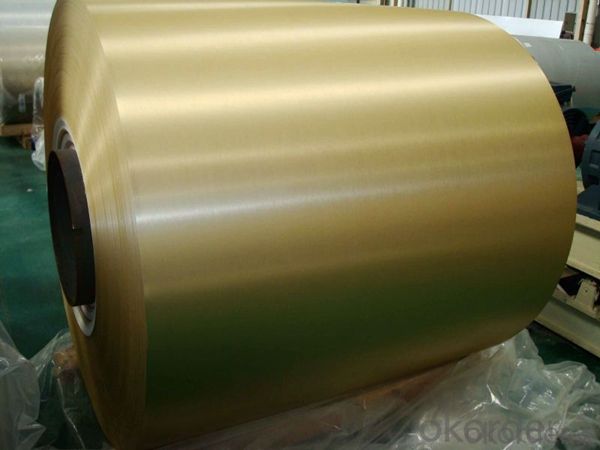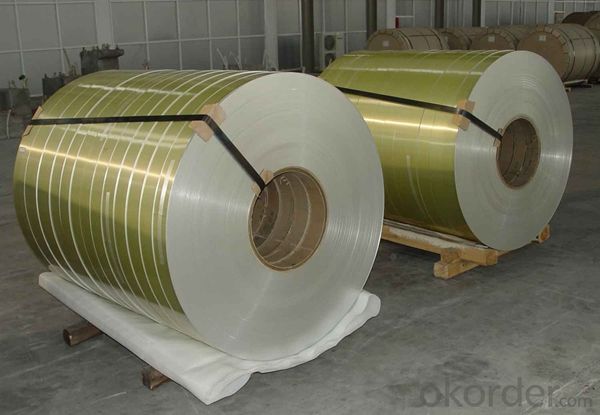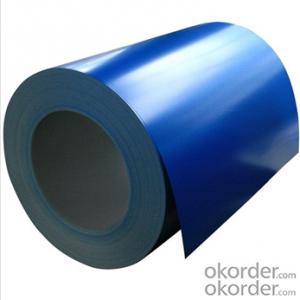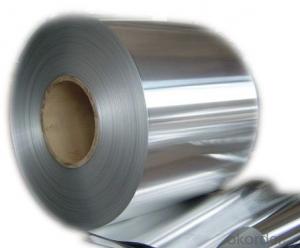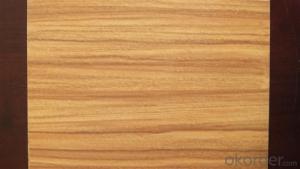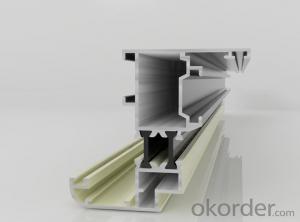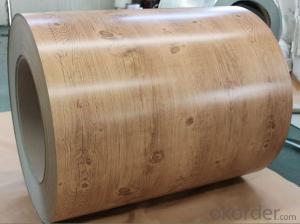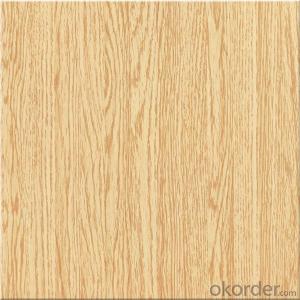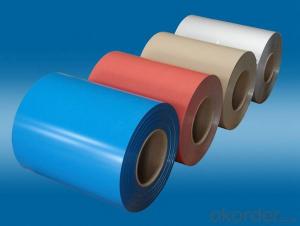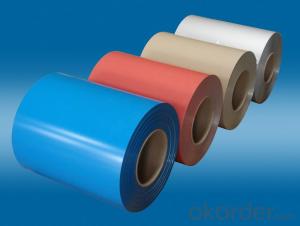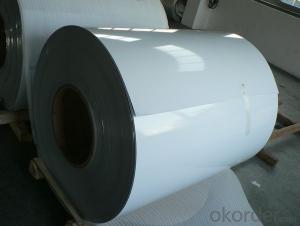102 Aluminum Coil for Interior Wall System - Brushed Coating Washington
- Loading Port:
- Shanghai
- Payment Terms:
- TT OR LC
- Min Order Qty:
- 5 m.t.
- Supply Capability:
- 10000 m.t./month
OKorder Service Pledge
OKorder Financial Service
You Might Also Like
Specification
1. Specification of Brushed Coating Aluminum Coil for Interior Wall System
characteristics | Application |
1) Super peeling strength | 1) Building exterior curtain walls |
2) Excellent surface flatness and smoothness | 2) Decoration and renovation additions for old buildings |
3) Superior weather, corrosion, pollutant resistance | 3) Decoration of interior walls, ceilings, bathrooms, kitchens and balconies |
4) Even coating, various colors | 4) Shop door decorations |
5) Fireproof, excellent heat and sound insulation | 5) Advertisement board display platforms and signboards |
6) Superior impact resistance | 6) Wallboards and ceilings for tunnels |
7) Lightweight and easy to process | 7) Industrial materials, materials for vehicles and boats |
2. Application of Brushed Coating Aluminum Coil for Interior Wall System
(1).Interior: wall cladding, ceilings, bathrooms, kitchens and balconies, shutters, doors...
(2).Exterior: wall cladding, facades, roofing, canopies, tunnels,column covers , renovations...
(3).Advertisement: display platforms, signboards, fascia, shop fronts...
3. Feature of Brushed Coating Aluminum Coil for Interior Wall System
*Such coil is specially designed to replace aluminum ingot, due to the high export tax of aluminum ingot, the coil has better price than ingot.
*This type of coil can fit customer's remelting furnace just like ingot, no need to make any change to the production line that was previously used for ingot. The standard coil size and weight is very suitable for the feed gate of furnace.
*This type of coil causes less material wastage than ingot when remelted.
*Our coil is made directly from ore, no need to go though the ingot making process, quality is much better than other suppliers who use ingot scrap to make coil.
Be free from Oil Stain, Dent, Inclusion, Scratches, Stain, Oxide Dicoloration, Breaks, Corrosion, Roll Marks, Dirt Streaks and other defect which will interfere with use
4. Certificate:
SGS and ROHS(if client request, paid by client), MTC(plant provided), Certificate of Origin(FORM A, FORM E, CO), Bureau Veritas and SGS (if client request, paid by client), CIQS certificate
5. Image of Brushed Coating Aluminum Coil for Interior Wall System
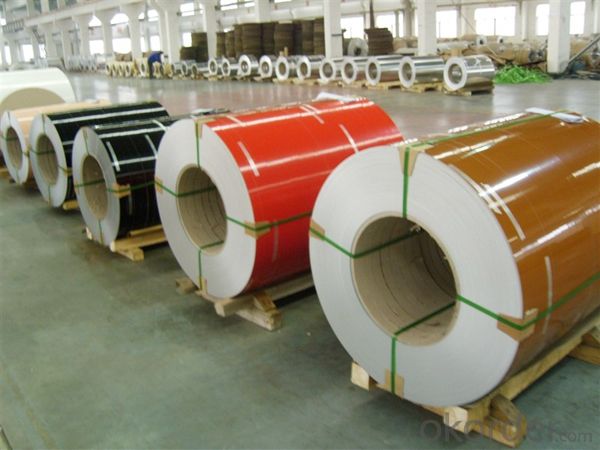
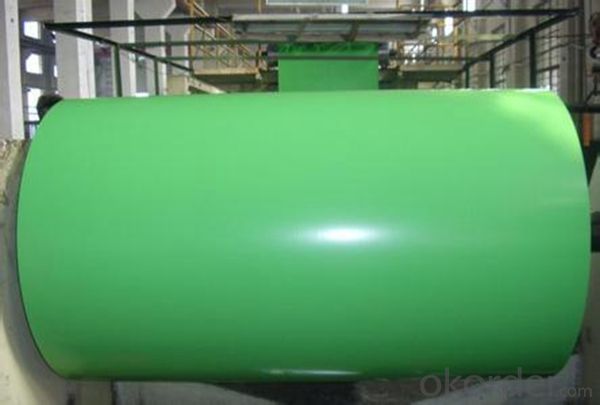
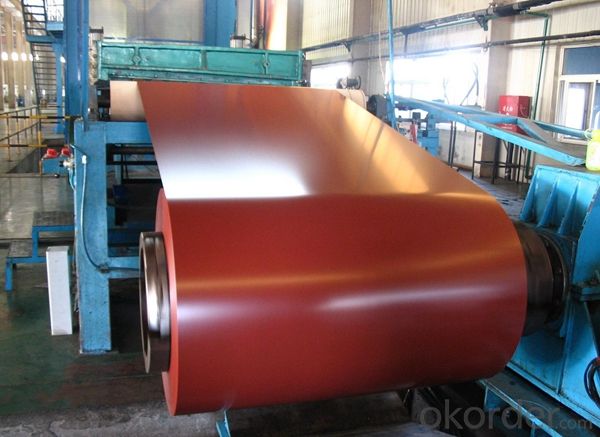
6. Package and shipping of Brushed Coating Aluminum Coil for Interior Wall System
eye to wall
eye to the wall
with wood pallet (wooded case also available)
7. FAQ
1) What is the delivery time?
Dpends on actual order, around 20 to 35 days
2)What is the QC system:
We have QC staff of 20 persons and advanced equipment, each production is with MTC traced from Aluminum ingot lot.
3) What market do you mainly sell to?
Australia, America, Asia, Middle East, Western Europe, Africa etc
- Q: Aluminum is a transition metal, woudn't the stock naming system apply to this formula?
- aluminium is not a transitional element its atomic number is 13 while transitional elements are in d -block (A) [ atomic no. 21 to 30 ( 3d elements), (B) atomic no. 39 to 48 [ 4d elements ] (C) atomic no. 57 to 80 [ 5d elements ] so aluminium forms only one oxide Al2 O3 [ so its name is simply aluminium oxide] while transitional elements show variable valencies [ different oxidation states] so their name is given according to oxidation state ] e . g. Fe O [ iron (II) oxide i.e. ferrous oxide ] Fe2 O3 [ iron (III) oxide i. e. ferric oxide ]
- Q: What is the role of aluminum coils in the construction of ships?
- The marine industry heavily relies on aluminum coils for the construction of ships. These coils are essential in manufacturing various ship components and structures. The lightweight nature of aluminum coils is a significant advantage in ship construction. Compared to traditional steel, aluminum is much lighter, resulting in improved fuel efficiency and overall performance of the ship. This is particularly beneficial for larger vessels, as reducing weight helps minimize energy consumption and operating costs. Furthermore, aluminum coils offer outstanding resistance to corrosion, making them ideal for the harsh marine environment. Ships constantly face exposure to corrosive saltwater, which can deteriorate metal materials. By utilizing aluminum coils, shipbuilders can ensure that their vessels are well-protected against rust and corrosion, ultimately extending their lifespan and reducing maintenance needs. Additionally, aluminum coils are easily shaped and formed into various structures, providing shipbuilders with greater design flexibility. This versatility allows for the creation of intricate ship components like hulls, superstructures, and bulkheads. Aluminum's excellent weldability also simplifies the process of joining different sections of the ship, resulting in more efficient and streamlined construction. Moreover, aluminum is a highly sustainable material. It can be recycled without any loss in quality or performance, making aluminum coils an environmentally friendly choice for ship construction. This aligns with the increasing focus on sustainability in the industry. In conclusion, aluminum coils play a multifaceted role in ship construction. They offer lightweight, corrosion-resistant, and easily formable materials that contribute to improved fuel efficiency, durability, and design flexibility. Additionally, their recyclability makes them an environmentally conscious option. Overall, aluminum coils are a vital component in building efficient, durable, and sustainable ships.
- Q: Are aluminum coils suitable for architectural roofing systems?
- Yes, aluminum coils are suitable for architectural roofing systems. Aluminum is a popular choice for roofing due to its numerous advantages. Firstly, aluminum is lightweight, which makes it easier to handle during installation and reduces the load on the building's structure. Additionally, aluminum is highly durable and corrosion-resistant, making it a long-lasting option for architectural roofing systems. It also has excellent thermal properties, reflecting heat and reducing energy consumption. Moreover, aluminum coils can be easily shaped and formed into various profiles and designs, allowing for flexibility in architectural styles. Lastly, aluminum is a sustainable material as it is recyclable, making it an environmentally friendly choice for roofing systems. Overall, aluminum coils are a suitable and practical option for architectural roofing systems, providing durability, versatility, and energy efficiency.
- Q: Is it possible to use a crowbar as a tool for opening an aluminum coil?
- <p>While a crowbar can be used to apply force to open various objects, it may not be the most suitable tool for opening an aluminum coil. Aluminum coils can be sharp and using a crowbar could lead to injury or damage to the coil. It's recommended to use gloves and a pair of pliers or a coil cutter specifically designed for handling aluminum coils to ensure safety and avoid damaging the material.</p>
- Q: Is it okay to combine copper with aluminum in case of minting or coin making? Thanks :)
- Well, there are aluminum alloys that have copper in them (although they usually have other metals also), so I don't think it would be a problem. If you're thinking of copper plated aluminum, there is the potential for a galvanic reaction (meaning like a battery cell) that could cause the coin to corrode and fall apart. It's the same problem with the current production of US cents (which are copper coated zinc).
- Q: I know when you stick weld aluminum you're more brazing than actually welding but i was just wondering about this, i want some electrodes just in case i need a temporary repair. Also what Amperage should i run it at,and what polarity?? my friend told me to run hotter than usual but hes only 14, and I dont know how reliable he is. Im 14 by the way also and have been welding for two years now and im always out running around the ranch doing small repairs. thanks ahead of time!
- you okorder /... heres some stuff you can buy online
- Q: What are the insulation options available for aluminum coils?
- There are several insulation options available for aluminum coils, depending on the specific requirements and applications. Some common insulation options include: 1. Foam Insulation: Foam insulation is a popular choice for aluminum coils as it provides excellent thermal insulation properties. It is available in various forms, such as rigid foam boards or flexible foam sheets, and can be easily cut and fitted around the coils. 2. Fiberglass Insulation: Fiberglass insulation is another commonly used option for aluminum coil insulation. It consists of thin glass fibers that are woven together to create a blanket-like material. Fiberglass insulation is lightweight, easy to install, and offers good thermal and acoustic insulation. 3. Mineral Wool Insulation: Mineral wool insulation is made from natural or synthetic minerals, such as rock or slag, that are melted and spun into fine fibers. It is known for its excellent fire-resistance properties and provides effective thermal insulation for aluminum coils. 4. Reflective Insulation: Reflective insulation is designed to reflect radiant heat away from the aluminum coils. It typically consists of a layer of aluminum foil laminated to a layer of fiberglass or plastic bubble wrap. Reflective insulation is particularly effective in warmer climates where reducing heat gain is a priority. 5. Vapor Barrier Insulation: Vapor barrier insulation is used to prevent the transfer of moisture through the insulation material. It is often applied as a coating or film over the insulation to create a barrier against water vapor, reducing the risk of condensation buildup on the aluminum coils. It is important to consider factors such as thermal conductivity, fire resistance, moisture resistance, and installation requirements when selecting the appropriate insulation option for aluminum coils. Consulting with a professional or referring to manufacturer guidelines can help in determining the most suitable insulation option for specific coil applications.
- Q: Can aluminum coils be anodized for enhanced durability?
- Yes, aluminum coils can be anodized for enhanced durability. Anodizing is a process that creates a layer of aluminum oxide on the surface of aluminum, making it more resistant to corrosion, wear, and scratches. This layer also provides added protection against UV rays and harsh environmental conditions. By anodizing aluminum coils, they become more durable and can withstand prolonged use in various industries such as construction, automotive, and electronics. Additionally, anodized aluminum coils can be further treated with additional coatings or finishes to enhance their appearance and offer further protection. Overall, anodizing aluminum coils is a widely used and effective method to enhance their durability and prolong their lifespan.
- Q: What is the flexural strength of aluminum coils?
- The flexural strength of aluminum coils varies depending on the specific grade and thickness of the aluminum used. Generally, aluminum coils have good flexural strength due to the inherent properties of aluminum, which is known for its high strength-to-weight ratio.
- Q: How are aluminum coils annealed?
- Aluminum coils are typically annealed through a process known as heat treatment. This involves heating the coils to a specific temperature and then slowly cooling them down. The purpose of annealing is to soften the aluminum and improve its ductility, making it easier to work with. The first step in annealing aluminum coils is to clean them thoroughly to remove any contaminants. The coils are then placed in a furnace, which is heated to the desired temperature. The temperature and duration of the annealing process depend on the specific grade and thickness of the aluminum being treated. Once the coils reach the desired temperature, they are held at that temperature for a predetermined amount of time. This allows for the internal structure of the aluminum to become more uniform and relieves any internal stresses that may have developed during the manufacturing process. After the annealing process is complete, the coils are slowly cooled down in the furnace. This slow cooling is important to prevent the formation of any new internal stresses. Once the coils have cooled to room temperature, they are ready for further processing or use. In some cases, a process known as quenching may be used after annealing. Quenching involves rapidly cooling the aluminum by immersing it in a quenching medium, such as water or oil. This can help to further improve the mechanical properties of the aluminum, such as its strength and hardness. Overall, the annealing process for aluminum coils is a carefully controlled heat treatment that aims to improve the metal's properties and make it more suitable for various applications.
Send your message to us
102 Aluminum Coil for Interior Wall System - Brushed Coating Washington
- Loading Port:
- Shanghai
- Payment Terms:
- TT OR LC
- Min Order Qty:
- 5 m.t.
- Supply Capability:
- 10000 m.t./month
OKorder Service Pledge
OKorder Financial Service
Similar products
Hot products
Hot Searches
Related keywords
